Content
Free Mental Health Assessment
Anxiety Disorder Treatments: 17 Medical & Natural Ways

We all feel anxious now and again. But when anxiety starts becoming a not-so-fun part of everyday life, it may be a sign of an anxiety disorder.
Luckily, anxiety disorders are treatable. And there are many treatments out there — from natural remedies and lifestyle changes to therapies and medication.
Below, we’ll dive into these anxiety disorder treatments and the science behind them.
Content
Natural anxiety disorder treatments seem great — minimal side effects, no prescriptions, the word “natural.” But if this all sounds too good to be true, that’s because it could be.
There’s not a ton of scientific evidence behind natural treatments for anxiety, but there is some promise.
1. Supplements for Anxiety
While there are some promising studies on supplements for anxiety, there’s not enough evidence to fully back them up as a treatment option. They aren’t FDA-approved, so your best bet is to talk to a healthcare provider if you’re experiencing anxiety symptoms.
More research needs to be done, but here’s what we do know.
2. Chamomile
You’ve probably heard how a soothing cup of chamomile tea can ease anxiety. And there may be some science behind it.
A 2016 study looked at 179 participants with moderate-to-severe generalized anxiety disorder (GAD). They took a 1,500-milligram chamomile extract supplement every day for up to eight weeks. The results showed chamomile helped reduce anxiety symptoms in almost 60 percent of participants, and no severe side effects were reported.
Many supplements use a mix of soothing ingredients, including the Hers mind unwind calm drops, which include chamomile.
3. Passionflower
One study compared passionflower to oxazepam, a type of benzodiazepine. Over four weeks, participants took either 45 drops of passionflower extract or 30 milligrams of oxazepam.
Both passionflower and oxazepam were effective at treating anxiety. But oxazepam came with more side effects related to impaired job performance.
One problem? The study was small — a mere 36 people — so larger-scale studies are needed.
4. Valerian Root
Valerian root may help with both anxiety and sleep — which is good news because if you’ve got an anxiety disorder, you might have sleep problems too.
A 2003 review of studies states valerian root can help you fall asleep faster, improve sleep quality and even treat insomnia.
Valerian root is sometimes used to help those with mild anxiety, but there’s not much evidence behind it. The review shares studies suggesting valerian root can reduce self-reported stress, heart rate reaction and anxiety.
Sounds promising. However, the researchers concluded there’s still not enough evidence to say whether valerian root can actually treat anxiety or not.
5. Kava
Kava, also known as kava kava, comes from the Piper methysticum plant.
It can have similar effects to alcohol, such as relaxation, talkativeness and euphoria — all the fun parts of drinking, without the hangover.
Kava is thought to help with anxiety, stress, insomnia and premenstrual syndrome (PMS). But it’s not all good news.
There are safety concerns around kava and liver injury. It’s even been banned or restricted in some countries, including Canada, Germany and Great Britain. Yikes.
6. Lemon Balm
Lemon balm has been used to reduce anxiety, promote calmness and help people fall asleep.
A 2023 study found that lemon balm extract helped reduce anxiety and depression severity. But this study was in people with type 2 diabetes. More research is needed to see if lemon balm could be effective in those without the medical condition.
Another study, this time from 2010, gave lemon balm extract to stressed participants with mild-to-moderate anxiety disorders and sleep disturbances. Lemon balm was found to improve anxiety symptoms and insomnia.
7. Lavender
Lavender is known for its soothing scent, but is there any solid science behind essential oils for anxiety?
There’s some. A 2017 review states that lavender essential oil may ease anxiety and have a calming effect without sedation.
It doesn’t come with many side effects, and it can work pretty quickly. The review states lavender essential oil may be a good alternative treatment for those with anxiety disorders.
But once again, more research is needed — and it’s not FDA-approved.
8. Lifestyle Habits for Managing Anxiety
Managing anxiety isn’t all about popping pills. Lifestyle changes can make a difference in how you feel.
These changes and habits can help to reduce anxiety in the moment and ease anxious feelings in the long run.
9. Limit Alcohol and Caffeine Consumption
A cup of coffee in the morning and a glass of red wine in the evening are two of life’s small pleasures. But according to the Anxiety & Depression Association of America, alcohol and caffeine can make anxiety worse.
They can even trigger panic attacks. Not fun.
Alcohol and anxiety are a dangerous combo. You might find a drink or two helps ease your anxiety symptoms. But this can lead to self-medicating, drinking more and developing an alcohol problem on top of your anxiety disorder.
Start with small changes. Try swapping your afternoon latte for decaf and going for soda water or a fun mocktail.
10. Quit Smoking
We all know smoking is bad for our lungs, but there’s a link between nicotine and anxiety too.
Smoking rates are significantly higher among those with anxiety disorders, and people with increased anxiety are more likely to smoke.
The link could go both ways. Smoking may increase the risk of developing increased anxiety. But there’s not enough evidence to say for sure.
To quit, tell friends and family you’re planning on quitting to get their support. You can also find a substitute for cigarettes, like toothpicks or straws, and distract yourself when you get cravings.
11. Exercise
Hitting the gym isn’t just good for your physical health. There’s plenty of evidence supporting exercise for mental health too.
Exercise can reduce your stress, boost your mood and minimize symptoms of anxiety.
And you don’t need a full hour in the gym. A 10-minute walk may be as good as a 45-minute workout at relieving anxiety and depression.
If you’re up for more intense exercise, one vigorous workout can improve anxiety symptoms for hours, and a regular workout routine can improve them in the long run.
According to the CDC (Centers for Disease Control and Prevention), adults should do 150 minutes of moderate-intensity exercise and two days of muscle-strengthening activities each week.
12. Stress-Management Techniques
You can’t avoid stressful situations altogether, but you can learn how to better handle stress and reduce anxiety symptoms with stress-management techniques.
Stress-management techniques can also make therapy more effective.
When stress and anxiety hit, try healthy coping mechanisms, such as:
Mindfulness practices like deep breathing and yoga
Meditation to reduce stress
Focusing on a hobby
Writing a to-do list and prioritizing urgent tasks
Setting boundaries with people who demand a lot from you, whether it’s your boss or a loved one
Writing down what you’re grateful for each night
Want more lifestyle and self-help tips? We’ve shared more advice in our guide to controlling anxiety.
13. Anxiety Disorder Therapies
Psychological therapies can be effective treatments for anxiety disorders. These include:
Psychotherapy. Whether talking IRL, joining a support group or doing online therapy, you can discuss your symptoms with a mental health professional and learn tools to help you manage anxiety. There are many types of psychotherapy. One is cognitive behavior therapy (CBT), which aims to change your thoughts and beliefs. It’s been shown to be effective at treating anxiety disorders.
Anxiety hierarchy. If your anxiety includes a specific phobia, anxiety hierarchy might help. The therapy exposes you to increasingly anxiety-inducing situations in an effort to desensitize you to what you’re scared of. It’s similar to exposure therapy, where you expose yourself (not in that way) to your phobia to help you face it head-on.
EFT tapping. Emotional freedom technique, or EFT tapping, involves tapping your fingers on certain points on the body while talking through traumatic memories or emotions. Sounds odd, but a 2019 study found that the method significantly decreased anxiety, cortisol (the stress hormone), blood pressure and resting heart rate.
Therapy alone might be effective at treating mental illnesses like anxiety disorders, but you may need a combo of therapy and medication.
Anxiety Medications
Medications can be useful at keeping symptoms of mental health conditions under control. They can be prescribed along with other anxiety interventions, like therapy or relaxation techniques.
It can take a few tries to find the right anti-anxiety medication for you, as prescription drugs affect us all differently. Here’s what’s out there.
14. Antidepressants
Despite the name, antidepressants aren’t just for depression. They’re FDA-approved to treat many types of anxiety disorders, including generalized anxiety disorder, obsessive-compulsive disorder (OCD), panic disorder, social phobia and post-traumatic stress disorder (PTSD).
There are a few types of antidepressants out there, and they all work slightly differently.
For example, selective serotonin reuptake inhibitors (SSRIs) block the reuptake of serotonin in your brain. In non-science speak, that means there’s more serotonin in your system, which boosts your mood.
SSRIs include:
Escitalopram (Lexapro®)
Fluoxetine (Prozac®)
Sertraline (Zoloft®)
Paroxetine (Paxil®)
Citalopram (Celexa®)
Serotonin norepinephrine reuptake inhibitors (SNRIs) block the reuptake of both serotonin and norepinephrine.
SNRIs include:
Venlafaxine (Effexor®)
Duloxetine (Cymbalta®)
Desvenlafaxine
Milnacipran
Levomilnacipran
Atypical antidepressants have several ways of working, which usually involve increasing the amount of dopamine and norepinephrine in your brain.
Atypical antidepressants include:
Bupropion XL (Wellbutrin XL)
Mirtazapine
Agomelatine
You can get a bupropion prescription online from Hers following a virtual consultation with a healthcare provider.
15. Beta-Blockers
Beta-blockers are usually used to treat cardiovascular diseases and heart-related conditions. Though they’re not FDA-approved for anxiety disorders, they have powerful anti-anxiety effects. So beta-blockers may be prescribed off-label for anxiety issues.
For example, propranolol is a type of beta-blocker that can help those with performance anxiety or stage fright. The medication reduces the physical symptoms of performance anxiety, like high heart rate, sweating and general tension.
16. Buspirone
Buspirone — the generic version of Buspar® — is another anxiety medication originally intended for another purpose. It was developed as an antipsychotic, but it has been found to help reduce anxiety.
It’s mainly used to treat generalized anxiety disorder, but it’s FDA-approved to treat other anxiety disorders or provide short-term relief from anxiety symptoms.
Buspirone might be a good option for you if the side effects of SSRIs are too much.
17. Benzodiazepines
Benzodiazepines are FDA-approved for anxiety disorders, panic disorders, insomnia and seizures — among other conditions. They may also be used for short-term anxiety relief, such as when catching a flight or going to the dentist.
Benzodiazepines include:
Alprazolam
Clonazepam
Lorazepam
Oxazepam
Diazepam
Benzodiazepines work faster than antidepressants. But they come with downsides.
First of all, the side effects aren’t pretty. They include drowsiness, vomiting, diarrhea, tremors and respiratory arrest (when your breathing stops — which will definitely get your anxiety going).
There’s also a risk of abuse and dependency, and your anxiety could back in full force when you stop taking the drug. Plus, you can develop a tolerance to benzodiazepines, meaning you need higher and higher doses to get the same effects.
The list of possible anxiety disorder treatments is long. And you may find combining multiple treatments, like medication with therapy or lifestyle changes, works best for you.
Supplements and lifestyle changes can ease anxiety. From chamomile extract to exercise, there’s some evidence behind natural treatments — though they’re not FDA-approved.
Therapies are also an option. Whether it’s speaking one-on-one with a therapist, cognitive behavioral therapy or EFT, it’s worth exploring psychotherapy for anxiety.
Medication can treat anxiety disorder. Antidepressants, beta-blockers, buspirone and benzodiazepines are just a few of the many meds out there that might help.
Suffering from an anxiety disorder or battling anxious thoughts? Reach out to a healthcare provider to find the best treatment plan for you.
You can speak to one of our online psychiatry professionals or check out our mental health services, which include therapy and medication.
28 Sources
Hims & Hers has strict sourcing guidelines to ensure our content is accurate and current. We rely on peer-reviewed studies, academic research institutions, and medical associations. We strive to use primary sources and refrain from using tertiary references.
- Anxiety Disorders: Facts & Statistics. (n.d.) Retrieved from: https://adaa.org/understanding-anxiety/facts-statistics
- Keefe, J. R., Mao, J. J., Soeller, I., Li, Q. S., & Amsterdam, J. D. (2016). Short-term open-label chamomile (Matricaria chamomilla L.) therapy of moderate to severe generalized anxiety disorder. Phytomedicine : international journal of phytotherapy and phytopharmacology, 23(14), 1699–1705. Retrieved from: https://www.ncbi.nlm.nih.gov/pmc/articles/PMC5589135/
- Akhondzadeh, S., Naghavi, H. R., Vazirian, M., Shayeganpour, A., Rashidi, H., & Khani, M. (2001). Passionflower in the treatment of generalized anxiety: a pilot double-blind randomized controlled trial with oxazepam. Journal of clinical pharmacy and therapeutics, 26(5), 363–367. Retrieved from: https://citeseerx.ist.psu.edu/document?repid=rep1&type=pdf&doi=1c824dfbaa54980e8f52d67f66ca057d9f66f05b
- Hadley, S., & Petry, J. J. (2003). Valerian. American family physician, 67(8), 1755–1758. Retrieved from: https://www.aafp.org/pubs/afp/issues/2003/0415/p1755.html
- Kava Kava. (2018, April 10). Available from: https://www.ncbi.nlm.nih.gov/books/NBK548637/
- Bongartz, U., Tan, B. K., Seibt, S., Bothe, G., Uebelhack, R., Chong, P. W., & Wszelaki, N. (2019). Sleep Promoting Effects of IQP-AO-101: A Double-Blind, Randomized, Placebo-Controlled Exploratory Trial. Evidence-based complementary and alternative medicine : eCAM, 2019, 9178218. Retrieved from: https://www.ncbi.nlm.nih.gov/pmc/articles/PMC6521387/
- Safari, M., Asadi, A., Aryaeian, N., Huseini, H. F., Shidfar, F., Jazayeri, S., Malek, M., Hosseini, A. F., & Hamidi, Z. (2023). The effects of melissa officinalis on depression and anxiety in type 2 diabetes patients with depression: a randomized double-blinded placebo-controlled clinical trial. BMC complementary medicine and therapies, 23(1), 140. Retrieved from: https://bmccomplementmedtherapies.biomedcentral.com/articles/10.1186/s12906-023-03978-x
- Cases, J., Ibarra, A., Feuillère, N., Roller, M., & Sukkar, S. G. (2011). Pilot trial of Melissa officinalis L. leaf extract in the treatment of volunteers suffering from mild-to-moderate anxiety disorders and sleep disturbances. Mediterranean journal of nutrition and metabolism, 4(3), 211–218. Retrieved from: https://www.ncbi.nlm.nih.gov/pmc/articles/PMC3230760/
- Malcolm, B. J., & Tallian, K. (2018). Essential oil of lavender in anxiety disorders: Ready for prime time?. The mental health clinician, 7(4), 147–155. Retrieved from: https://www.ncbi.nlm.nih.gov/pmc/articles/PMC6007527/
- Tips and Strategies to Manage Anxiety and Stress. (n.d.). Retrieved from: https://adaa.org/tips
- Turner, S., Mota, N., Bolton, J., & Sareen, J. (2018). Self-medication with alcohol or drugs for mood and anxiety disorders: A narrative review of the epidemiological literature. Depression and anxiety, 35(9), 851–860. Retrieved from: https://www.ncbi.nlm.nih.gov/pmc/articles/PMC6175215/
- Moylan, S., Jacka, F. N., Pasco, J. A., & Berk, M. (2013). How cigarette smoking may increase the risk of anxiety symptoms and anxiety disorders: a critical review of biological pathways. Brain and behavior, 3(3), 302–326. Retrieved from: https://www.ncbi.nlm.nih.gov/pmc/articles/PMC3683289/
- Tips for Quitting. (n.d.). Retrieved from: https://www.cdc.gov/tobacco/campaign/tips/quit-smoking/tips-for-quitting/index.html
- Exercise for Stress and Anxiety. (n.d.). Retrieved from: https://adaa.org/living-with-anxiety/managing-anxiety/exercise-stress-and-anxiety
- How much physical activity do adults need? (n.d.). Retrieved from: https://www.cdc.gov/physicalactivity/basics/adults/index.htm
- Meditation and Mindfulness: What You Need to Know. (n.d.). Retrieved from: https://www.nccih.nih.gov/health/meditation-and-mindfulness-what-you-need-to-know
- Caring for Your Mental Health. (n.d.). Retrieved from: https://www.nimh.nih.gov/health/topics/caring-for-your-mental-health
- Chand, S. P., Kuckel, D., P., Huecker, M., R. (2023, May 23). Cognitive Behavior Therapy - StarPearls. NCBI. Retrieved from: https://www.ncbi.nlm.nih.gov/books/NBK470241/
- APA Dictionary of Psychology. (n.d.). Retrieved from: https://dictionary.apa.org/anxiety-hierarchy
- What Is Exposure Therapy? (n.d.). Retrieved from: https://www.apa.org/ptsd-guideline/patients-and-families/exposure-therapy
- Bach, D., Groesbeck, G., Stapleton, P., Sims, R., Blickheuser, K., & Church, D. (2019). Clinical EFT (Emotional Freedom Techniques) Improves Multiple Physiological Markers of Health. Journal of evidence-based integrative medicine, 24, 2515690X18823691. Retrieved from: https://www.ncbi.nlm.nih.gov/pmc/articles/PMC6381429/
- Mental Health Medications. (n.d.). Retrieved from: https://www.nimh.nih.gov/health/topics/mental-health-medications#part_149861
- Sheffler, Z., M., Patel, P., & Abdijadid, S. (2023, May 26). Antidepressants - StatPearls. NCBI. Retrieved from: https://www.ncbi.nlm.nih.gov/books/NBK538182/
- Chu, A., Wadhwa, R. (2023, May 1). Selective Serotonin Reuptake Inhibitors - StatPearls. NCBI. Retrieved from: https://www.ncbi.nlm.nih.gov/books/NBK554406/
- Farzam, K., Jan, A. (2022, December 27). Beta Blockers - StatPearls. NCBI. Retrieved from: https://www.ncbi.nlm.nih.gov/books/NBK532906/
- Wilson, T., K., Tripp, J. (2023, January 17). Buspirone - StatPearls. NCBI. Retrieved from: https://www.ncbi.nlm.nih.gov/books/NBK531477/
- Bounds, C., G. Nelson, V., L. (2023, January 7.) Benzodiazepines - StatPearls. NCBI. Retrieved from: https://www.ncbi.nlm.nih.gov/books/NBK470159/
- Farach, F. J., Pruitt, L. D., Jun, J. J., Jerud, A. B., Zoellner, L. A., & Roy-Byrne, P. P. (2012). Pharmacological treatment of anxiety disorders: current treatments and future directions. Journal of anxiety disorders, 26(8), 833–843. Retrieved from: https://www.ncbi.nlm.nih.gov/pmc/articles/PMC3539724/
This article is for informational purposes only and does not constitute medical advice. The information contained herein is not a substitute for and should never be relied upon for professional medical advice. Always talk to your doctor about the risks and benefits of any treatment. Learn more about our editorial standards here.
Related Conditions
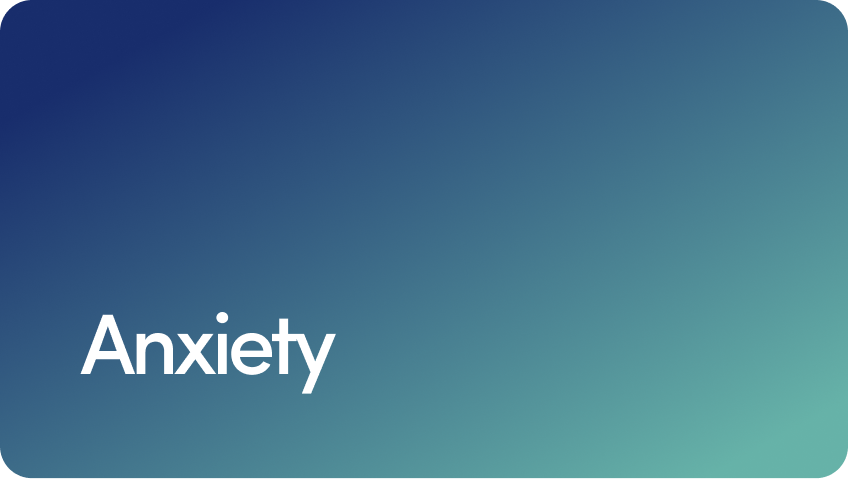 Anxiety
Anxiety
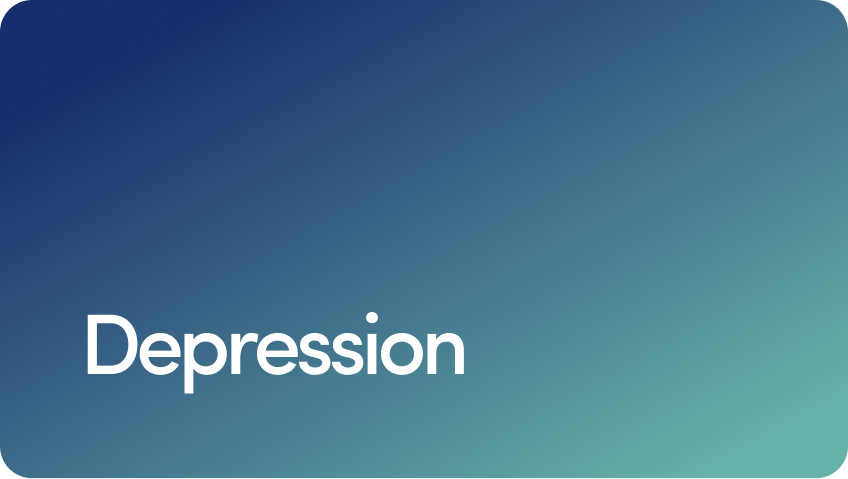 Depression
Depression
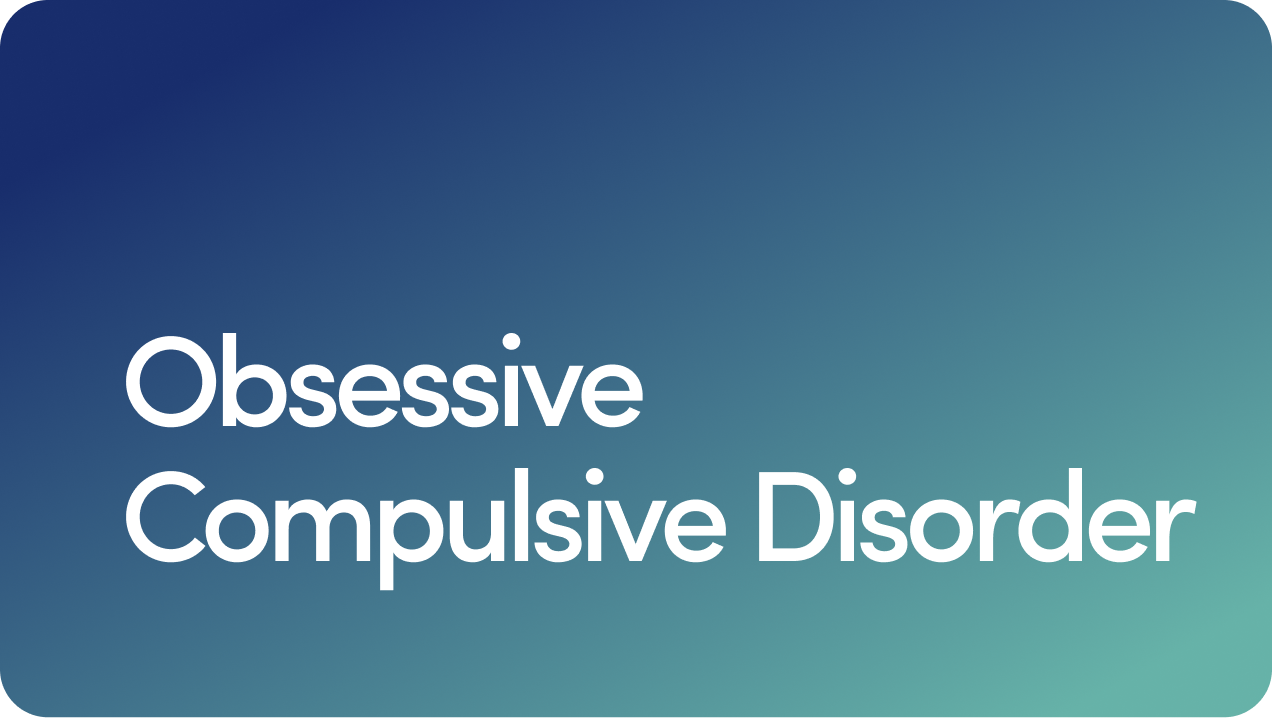 OCD
OCD
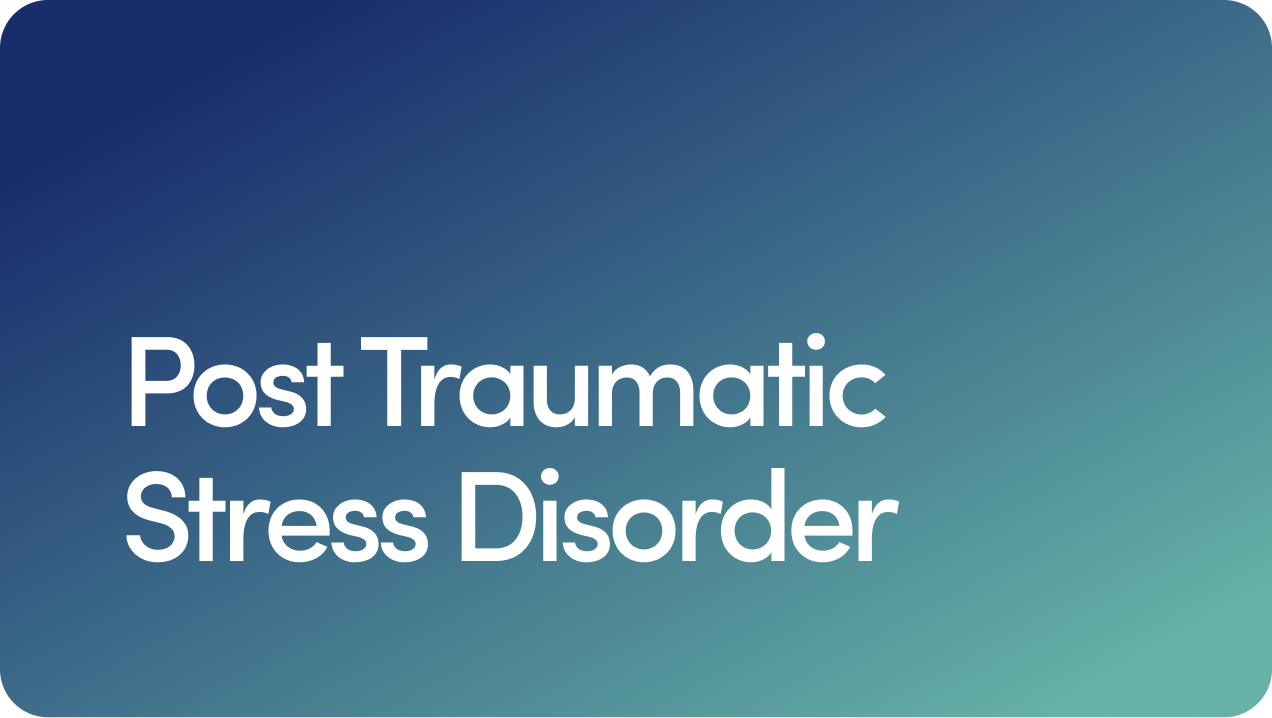 PTSD
PTSD
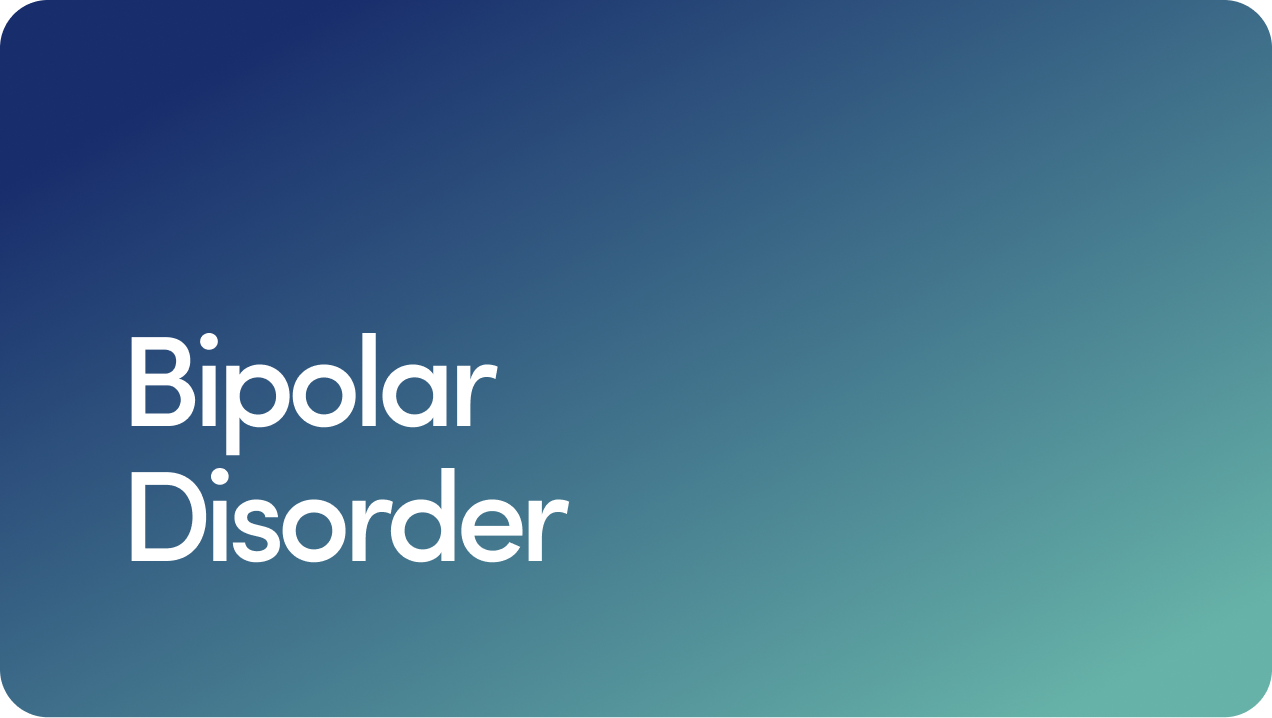 Bipolar Disorder
Bipolar Disorder
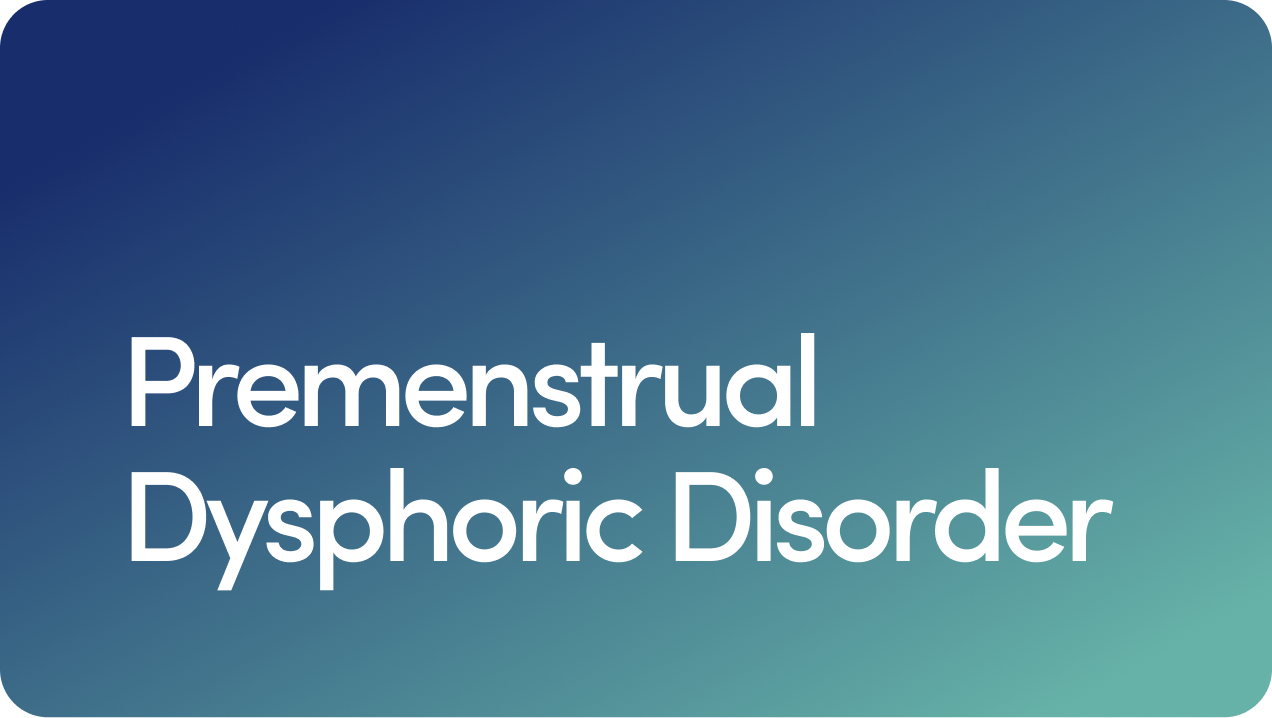 Premenstrual Dysphoric Disorder
Premenstrual Dysphoric Disorder